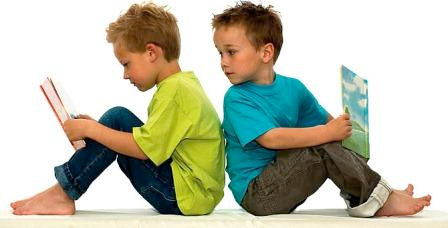What We Know
|
Age Level
|
| Emotional Development of Your Baby |
0-2 years |
| Emotional Flooding: Using Empathy to Help Babies Manage Strong Emotions (pdf) |
0-3 years |
| Understanding Temperament in Infants and Toddlers (pdf) |
0-3 years |
| Understanding Your Child’s Behavior: Reading Your Child’s Cues from Birth to Age 2 (pdf) |
0-3 years |
| Services for Families of Infants and Toddlers Experiencing Trauma: A Research-to-Practice Brief (pdf) |
0-3 years |
| Early Experiences Matter: Behavior and Development Series |
0-3 years |
| Supportive Relationships and Active Skill-Building Strengthen the Foundations of Resilience |
0-5 years |
| Self-Regulation and Toxic Stress: Foundations for Understanding Self-Regulation from an Applied Developmental Perspective (pdf) |
0-5 years |
| Helping Your Child Cope after a Disaster (pdf) |
0-5 years |
| Excessive Stress Disrupts the Architecture of the Developing Brain |
0-5 years |
| Children’s Responses to Crises and Tragic Events (pdf) |
0-5 years |
| Young Children Develop in an Environment of Relationships |
0-5 years |
| What Every Child Needs For Good Mental Health |
0-5 years |
| Positive Behavior Intervention and Supports (PBIS) in Early Childhood Settings |
0-5 years |
| A Parent’s Resource Guide to Social and Emotional Learning |
0-8 years |
| Attachment: What Works? (pdf) |
0-8 years |
| Teaching Social Skills |
0-8 years |
| How to Help Your Child Understand Emotions |
0-8 years |
| Promoting Optimal Development: Screening for Behavioral and Emotional Problems (pdf) |
0-18 years |
| Enhancing and Practicing Executive Function Skills with Children from Infancy to Adolescence (pdf) |
0-18 years |
| Strengthening Families: A Protective Factors Framework (pdf) |
0-18 years |
| Essentials for Parenting Toddlers and Preschoolers (pdf) |
2-5 years |
| Policy Statement on Expulsion and Suspension Policies in Early Childhood Settings (pdf) |
3-5 years |
| Are the Children Well? A Model and Recommendations for Promoting the Mental Wellness of the Nation’s Young People (pdf) |
3-5 years |
| National Evaluation of Three Approaches to Improving Preschoolers’ Social and Emotional Competence (pdf) |
3-5 years |
| What Could Make Less Sense than Expelling a Preschooler? (pdf) |
3-5 years |
| Teachers’ Emotional Consistency Matters for Preschool Children (pdf) |
3-5 years |
| Can Preschool Expulsion Be Prevented? A Growing Body of Research Says Yes! |
3-5 years |
| Promoting Social Competence (video) |
3-5 years |
| Helping Children Understand Routines and Classroom Schedules (pdf) |
3-8 years
|
| Helping Children Make Transitions between Activities (pdf) |
3-8 years
|
| Using Environmental Strategies to Promote Positive Social Interactions (pdf) |
3-8 years
|
| Helping Children Learn to Manage their Own Behavior (pdf) |
3-8 years
|
| Promoting Positive Peer Social Interactions (pdf) |
3-8 years
|
|
|
Activities
|
Age Level
|
| Teaching your Child Discipline and Self-Control |
0-2 years |
| Tips for Getting Baby to Sleep |
0-3 years |
| Supporting Your Child’s Relationship Building Skills |
0-3 years |
| Emotional Literacy (pdf) |
0-5 years |
| Creating Environments to Support Positive Behavior |
0-5 years |
| Books and Tips that Promote Life Skills |
0-8 years |
| Tips for Making Special Events Easier (i.e. dentist, holidays) |
0-8 years |
| Practical Strategies for Teachers/Caregivers |
0-8 years |
| Teaching Your Child To: Cooperate with Requests (pdf) |
0-8 years
|
| Toddlers and Challenging Behavior: Why They Do It and How to Respond |
2-3 years |
| Responding to Your Child’s Bite (pdf) |
3-6 years
|
| Teaching Tools for Young Children with Challenging Behaviors |
3-6 years
|
|
|
Special Needs
|
Age Level
|
| Coming together around Military Families |
0-3 years |
| Functional Behavioral Assessment |
0-5 years |
| Addressing Challenging Behaviors |
0-8 years |
| What Works Clearinghouse: Social Skills Training |
0-8 years |
| Parents’ Guide to Functional Assessment (pdf) |
0-8 years |
| What are Children Trying to Tell Us? Assessing the Function of Their Behavior (pdf) |
3-5 years |
| The Role of Time-Out in a Comprehensive Approach for Addressing Challenging Behaviors of Preschool Children (pdf) |
3-6 years |
| Understanding the Impact of Language Difference on Classroom Behavior (pdf) |
3-8 years
|
| Positive Behavior Support: An Individualized Approach for Addressing Challenging Behavior (pdf) |
3-8 years |
| Developing Social Skills for Students with visual Impairments and Multiple Disabilities (various videos) |
3-21 years
|

